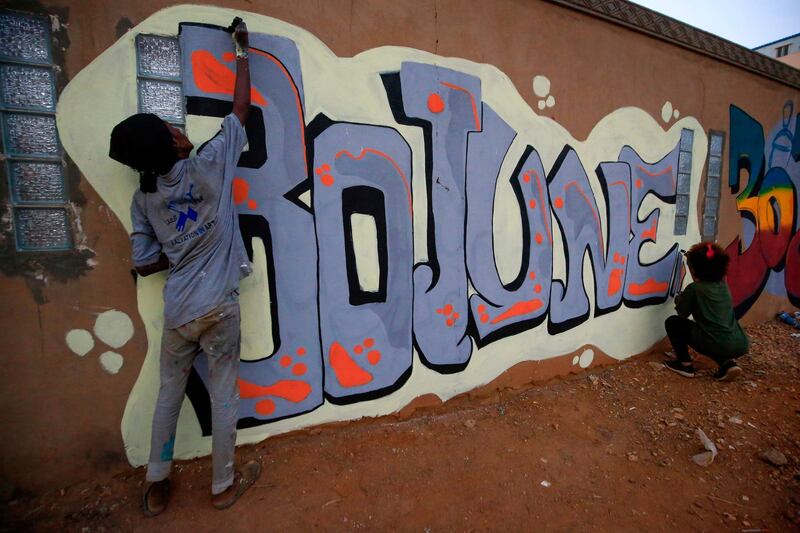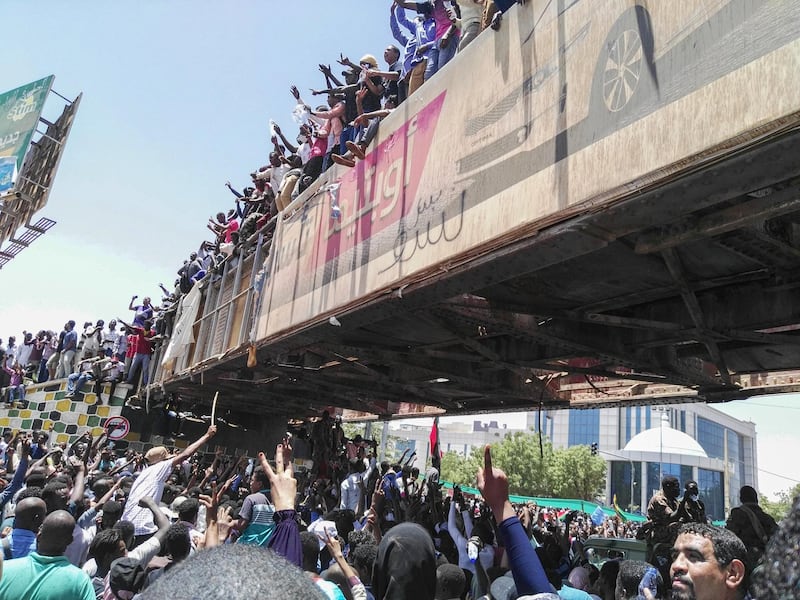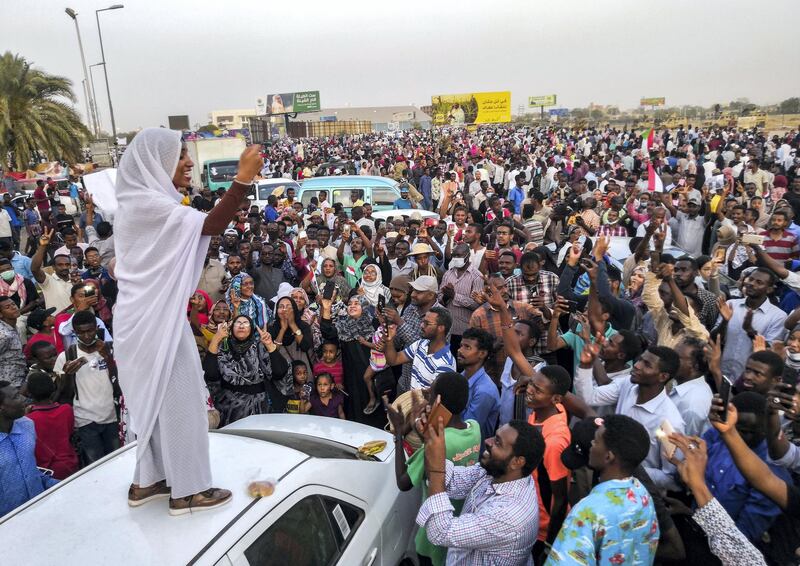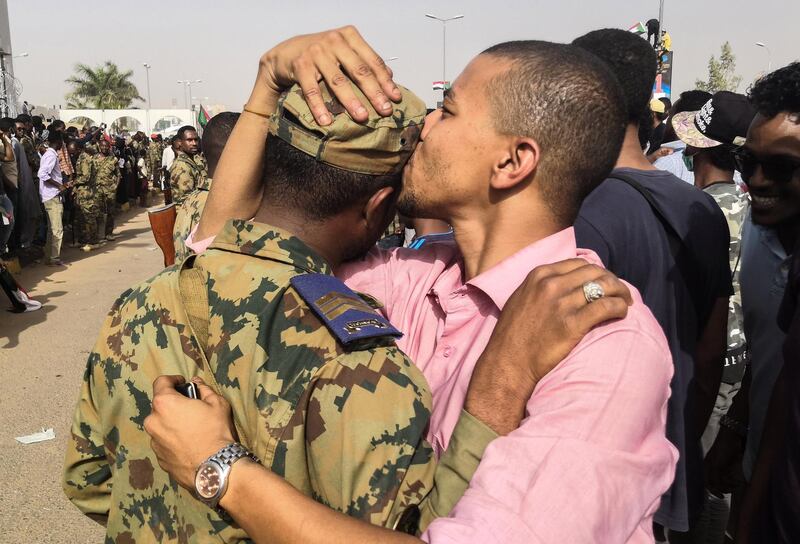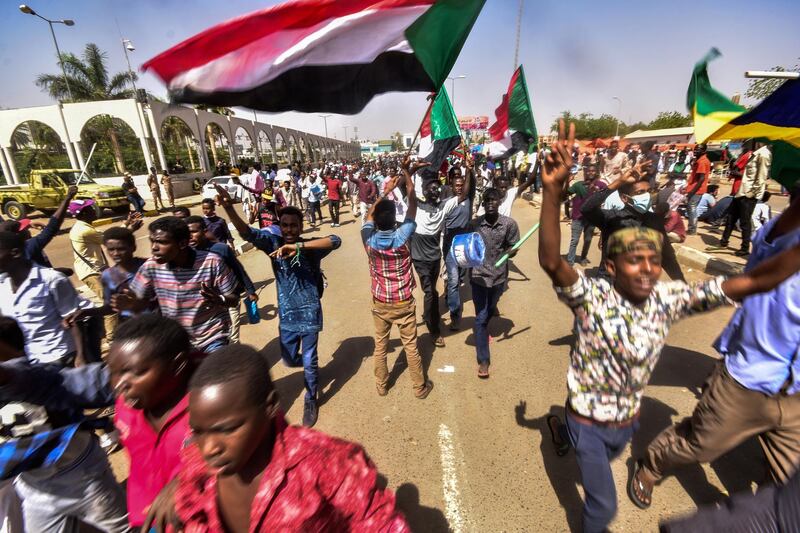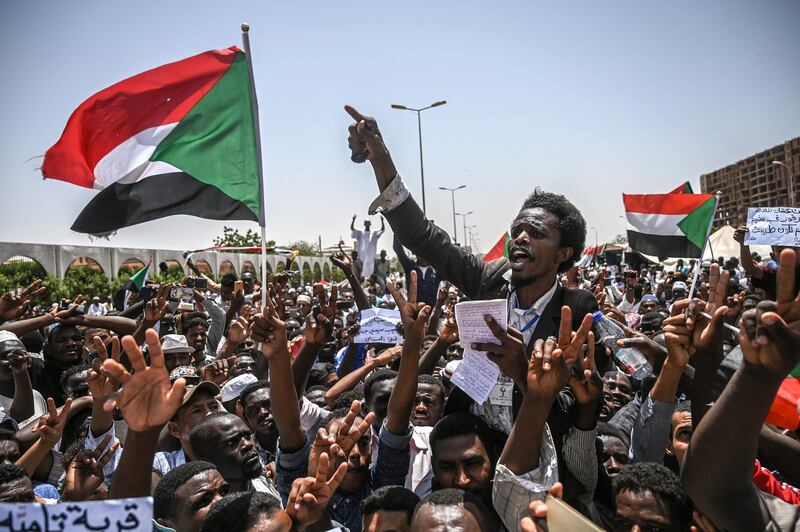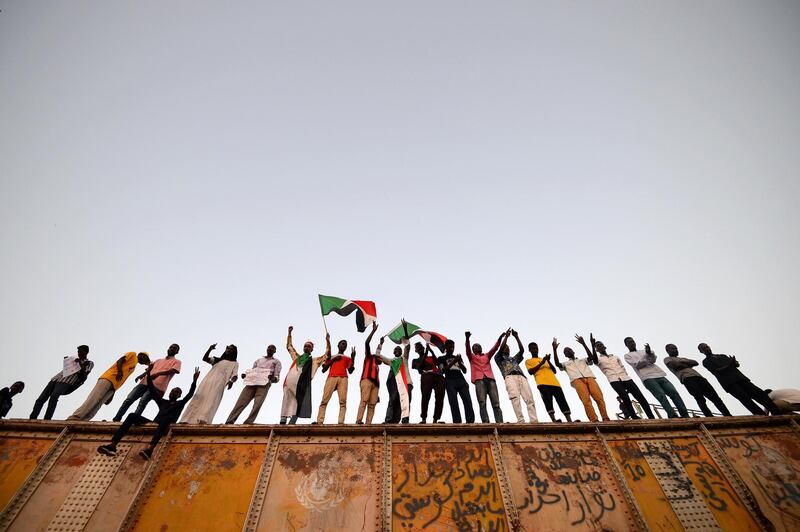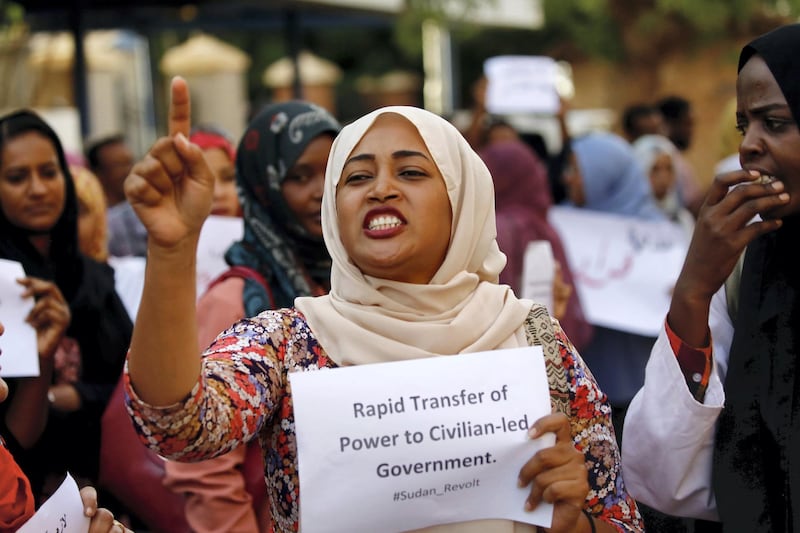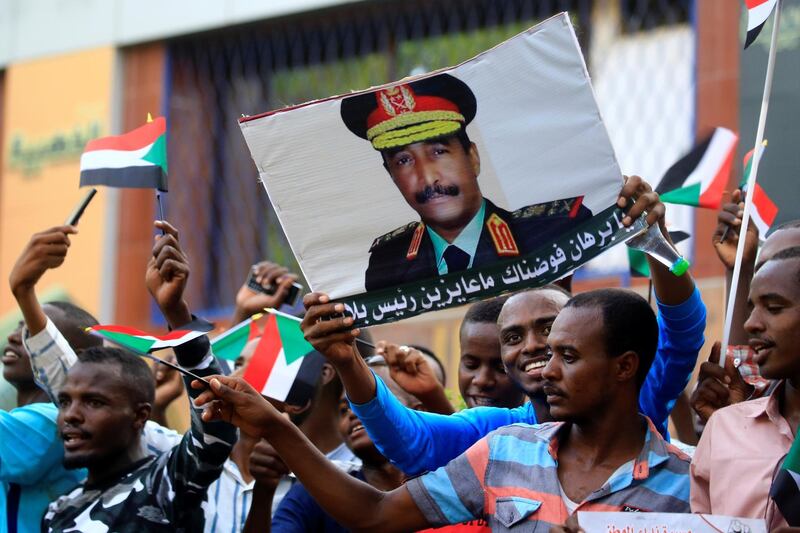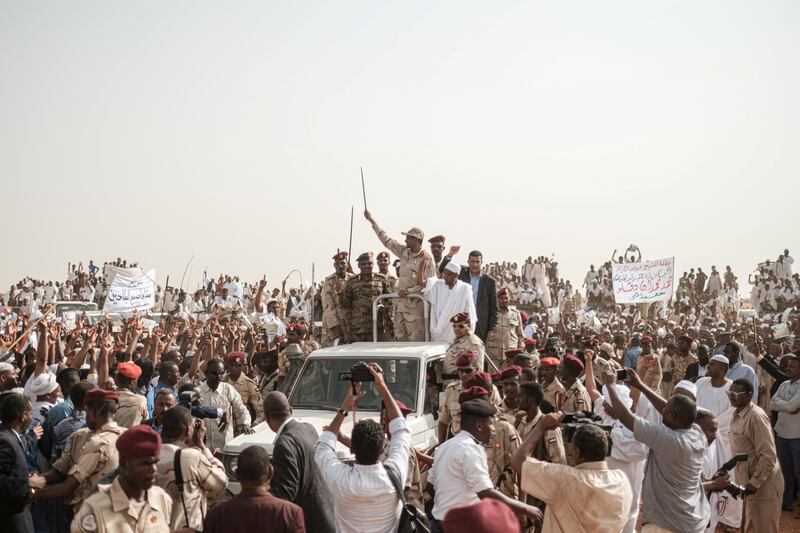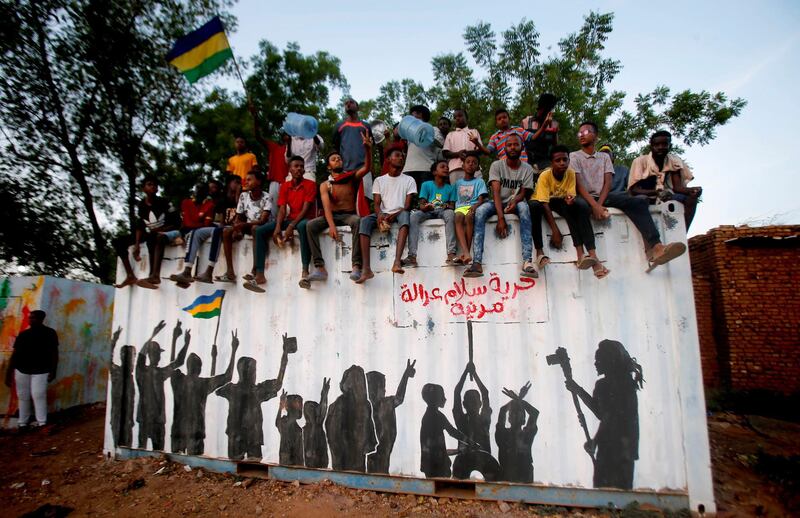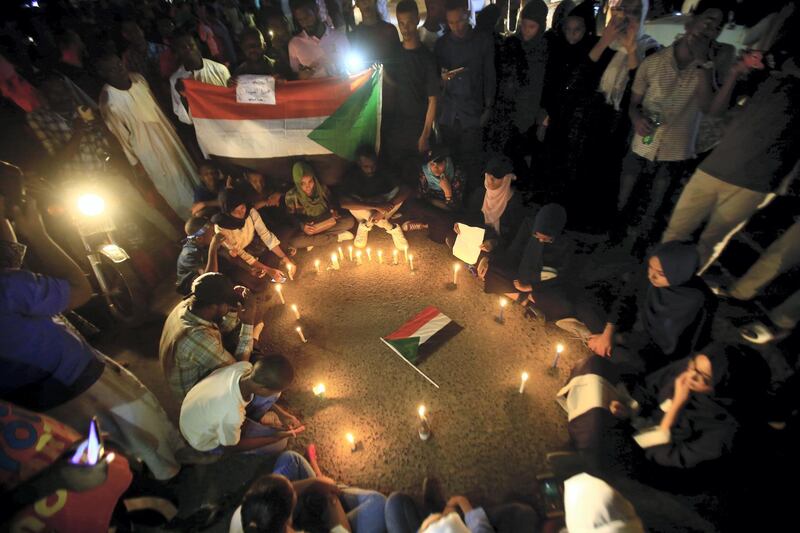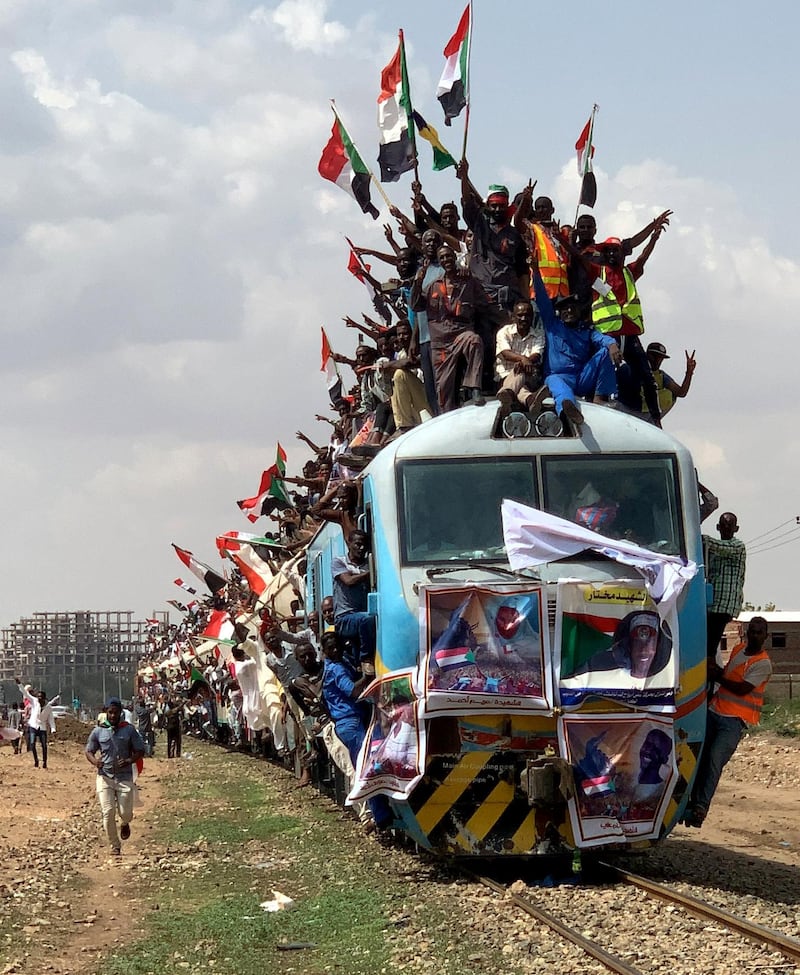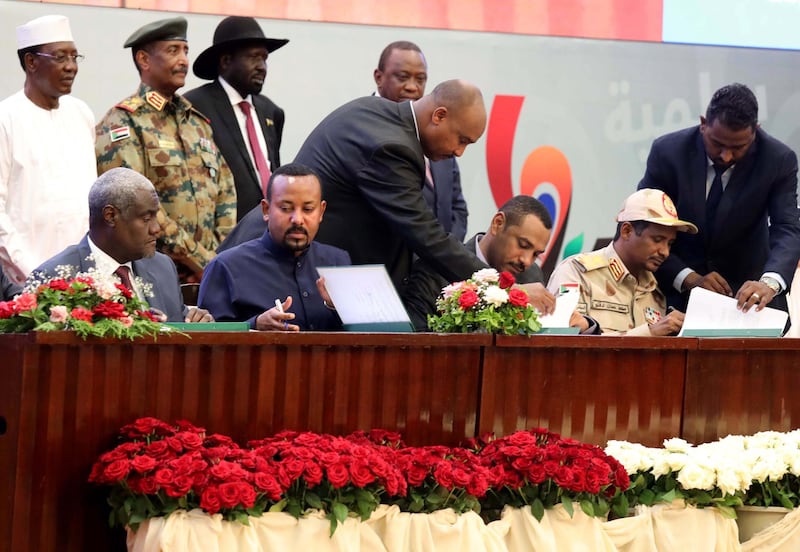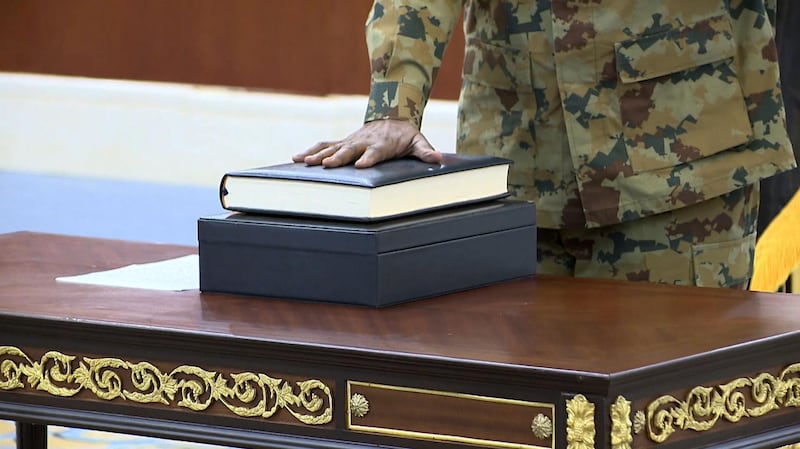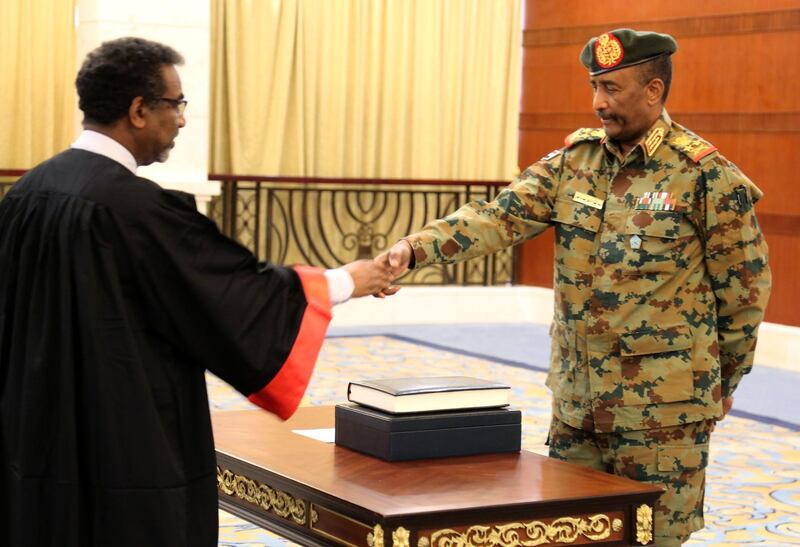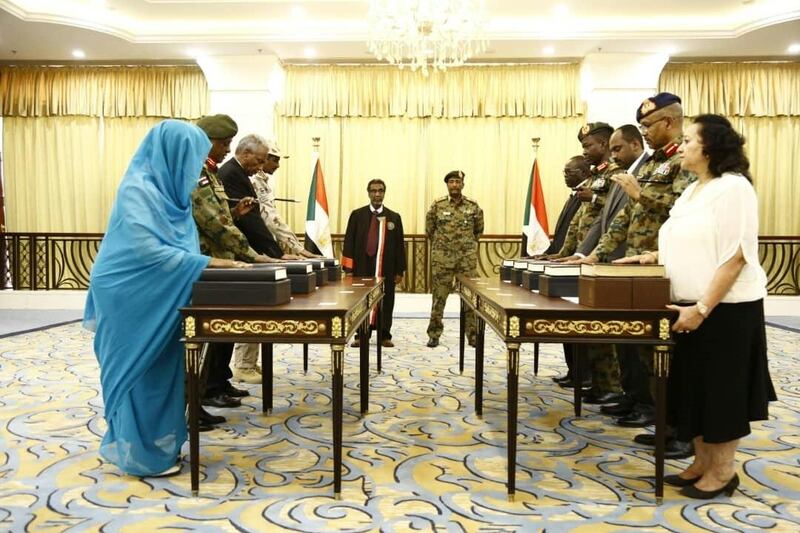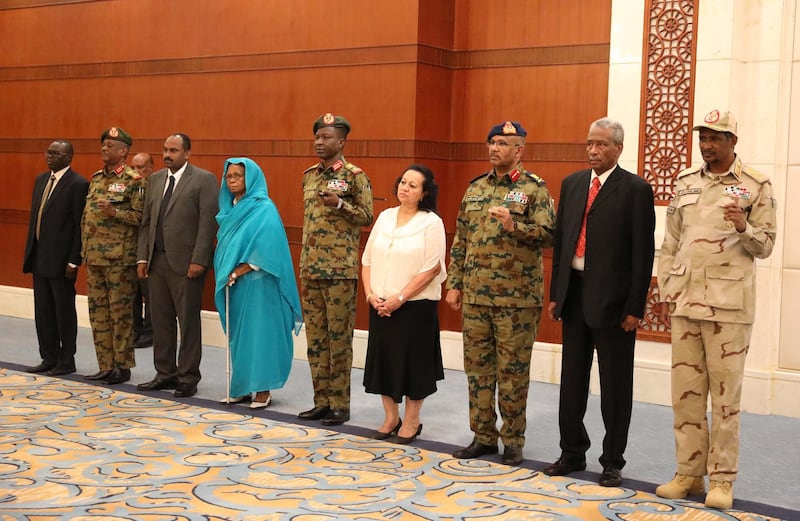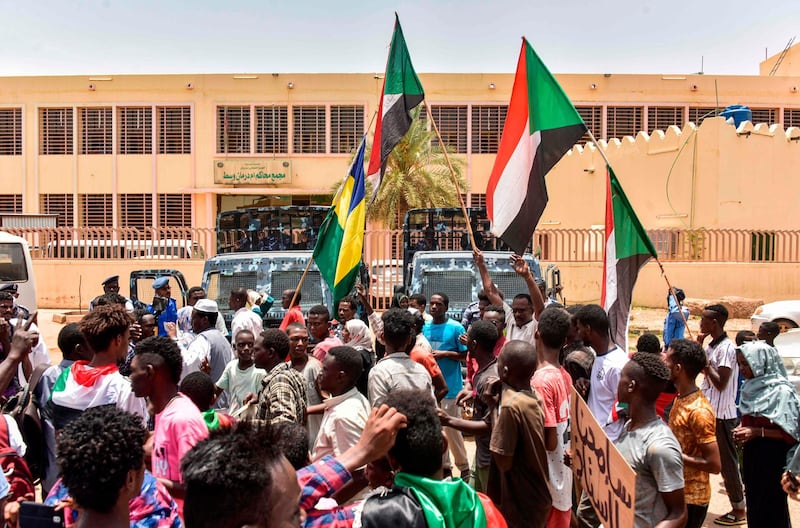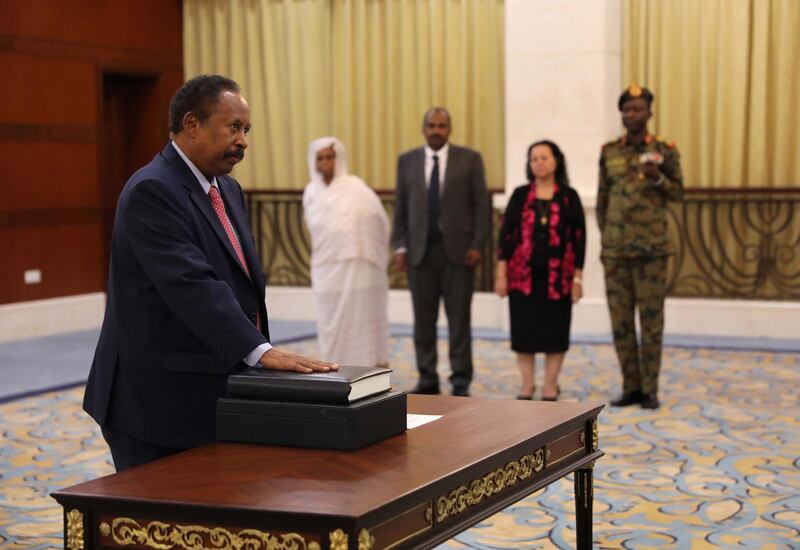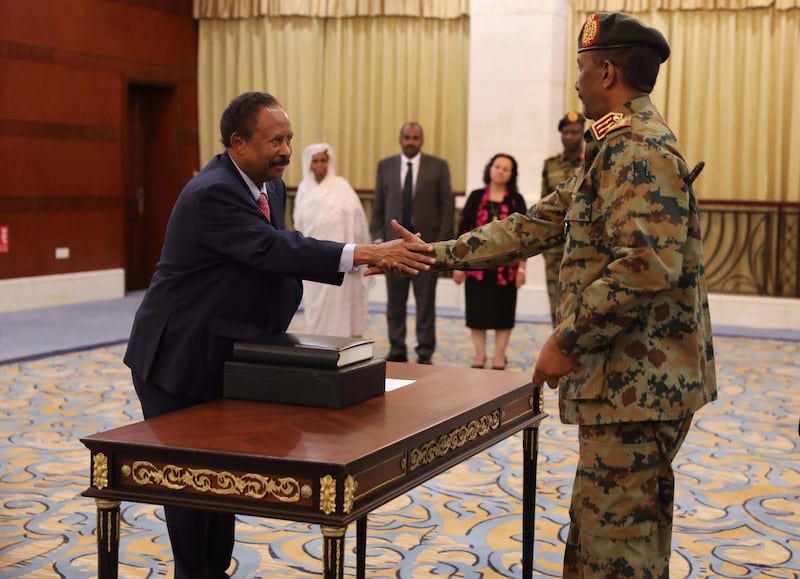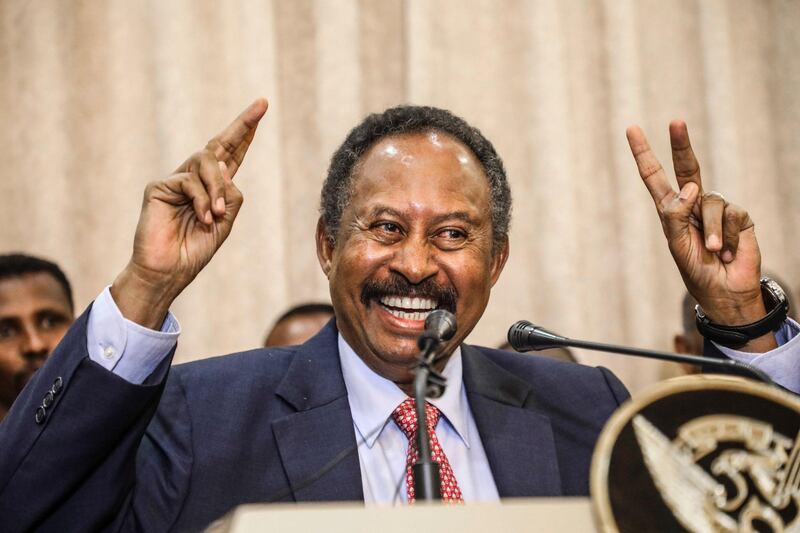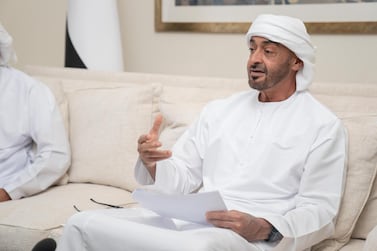Countries around the world donated more than $1.8 billion to support Sudan’s fledgling transition to democracy at conference hosted by Germany on Thursday.
The funding will help to ease Sudan's dire economic situation, which sparked the revolution against autocrat Omar Al Bashir last year.
The EU donated €312m (Dh1.28bn, $350.1m), America gave $356.2m, Germany €150m and France €100m.
The money will be spent on various projects in Sudan, officials told the online event.
The UAE Minister of State for International Co-operation, Reem Al Hashimy, pledged to provide $50m for economic growth initiatives in Sudan, in co-operation with the World Bank, to ensure job creation and encourage quality investments.
Ms Al Hashimy spoke of the $3bn provided by Saudi Arabia and the UAE in the days after the removal of Al Bashir.
The funding provided urgent cash to maintain Sudan's import of vital goods.
“I could speak for hours about the relations between UAE and Sudan,” Ms Al Hashimy said.
She also spoke of supplies delivered to Sudan to help in the fight against Covid-19.
Ms Al Hashimy said she hoped that peace deals being negotiated in Juba would be concluded soon to resolve long-running civil conflicts in Sudan.
The support through the World Bank, she said, was part of the UAE’s belief that investment was the way to create a prosperous future for the country.
Spain said it was providing €3m but was ready to cancel $74m in debt as soon as “conditions are met”.
The Arab League committed to help build up Sudan's public institutions and support for the peace process.
Prime Minister Abdalla Hamdok, running Sudan under a transitional power-sharing deal with the military, is desperate for foreign support.
Mr Hamdok thanked the international community for its support.
“We are extremely delighted with responses we’re hearing from partners and friends,” he said.
“It is the kind of support we had hoped for. There is a lot to be done, not only with solidarity but investment in the region.”
Mr Hamdok said that without the support, instability could spread through a volatile region in east and north-east Africa and disaffected young people would keep migrating by sea to Europe.
"We expect our partners to support us to have a successful transition," he said.
"I do not want to paint a rosy picture. Any transition is messy and there are so many challenges."
Inflation topped an annual 100 per cent last month and the Sudanese pound plunged to 141 to the dollar on the black market, compared to 55 at the official rate.
Sudan revolution in pictures
UN Secretary General Antonio Guterres called for massive aid, saying the region needed a stable and democratic Sudan.
A World Bank organised family cash scheme was central to many of the donations.
It aims to soften the blow from the removal of subsidies for fuel and other goods, which was demanded by western donors.
The subsidies cost Sudan an estimated $3bn a year.
The family cash scheme will soon aim to give $5 a person a month to nearly 80 per cent of Sudanese people.
The World Bank’s president, David Malpass, said it was important that the funds be channelled through the government to promote accountability, trust and capacity.
As nations pledged support, they also praised the progress made since the transitional agreement last summer.
Donors highlighted the challenges of providing more direct support to Sudan while it remains under US sanctions as a state sponsor of terrorism.
Discussions are continuing between Washington and Khartoum on resolving compensation claims about terrorist attacks that led to that designation, but there is no clear timetable on when the US will remove the listing.
USAid's acting administrator, John Barsa, said Washington would work with Sudan on the issue and highlighted the tenfold increase in support pledged on Thursday.
The US donation alone will go towards development and democratic transition programmes.
The conference also heard from some Sudanese people about the situation in the country.
Karar Ibrahim, a farmer, told delegates how the shortages of seeds, fuel and basic supplies affected their livelihoods.
“Our irrigation pumps and tools are old and inefficient," Mr Ibrahim said.
"If the minister of agriculture could provide seeds and fuel, then Sudan could indeed be the breadbasket of the world."
Artist Hamza Adam said despite the nation's advances towards democracy, change has yet to be felt.
“After 18 months, opportunities remain scarce or non-existent,” Adam said.
“The youth have not yet observed a clear transformation in their lives since the revolution and our dreams of finding a job have not yet come true.”
Many delegates also touched on support given during the coronavirus pandemic and the initiatives needed to address the economic impact of Covid-19.
